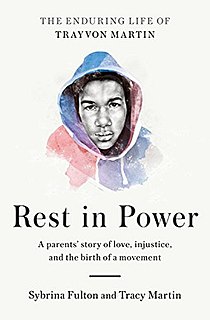A Quote by Jeannette Walls
The best time to tell your story is when you have to tell your story. When it's not really a choice. But then, when you get that first, messy, complicated version down, you have to read it over and be very tough on yourself and ask, 'Well what's the story here?' If you're lucky enough to have someone you trust looking over your shoulder, he or she can help you if [you] lack perspective on your own story.
Related Quotes
A good story isn't the one that shuts everyone down and sort of leaves them in silent awe. A good story is one that, even before you finish the anecdote, you can see their eyes shining because it has so resonated with something from their own lives that everyone in the group has a version of the same story and they cannot wait to tell it, and that they're going to compete to make their version even more extreme than your version. So your version is just a seed.
I think that when I'm telling a story, I'm doing the best I can to tell the story as fully as I can, and if there are various fractures that happen in the story, then that's just the very thing that the story is as opposed to my looking for avenues of difference in one story. They just really do exist. For me, anyway.
I think that people have to have a story. When you tell a story, most people are not good storytellers because they think it's about them. You have to make your story, whatever story it is you're telling, their story. So you have to get good at telling a story so they can identify themselves in your story.
Love is a story we tell with another person. It's cocreation through conarration. When you hit bumps in the road and challenges, you write a new chapter in your story together. Love is the constant act of revising and retelling your own story in real time. You don't do it by yourself. You do it with someone else. The only way you do that is to talk to each other and create a shared narrative.
If you have to tell a story without speaking, it's sort of like - I come from a dance background, so it's like a ballet where you have to tell a story with just your body. I think that's really interesting to have to tell a story with just your face and your mannerisms, and I'd like to tap into that world.
What's your story? It's all in the telling. Stories are compasses and architecture; we navigate by them, and to be without a story is to be lost in the vastness of world that spreads in all directions like arctic tundra or sea ice. To love someone is to put yourself in their place, we say, which is to put yourself in their story, or figure out how to tell yourself their story. Which means that a place is a story, and stories are geography, and empathy is first of all an act of imagination, a storyteller's art, and then a way of traveling from here to there.
If you gauge how you're doing on whether somebody is responding vocally or not, you're up a creek. You can't do that; you kind of have to be inside of your work and play the scene. And tell the story every day. Tell the story. Tell the story. Regardless of how people are responding, I'm going to tell the story.
I can't even tell you what else I imagined. I can only humiliate myself to such a degree; at a certain point it becomes humorous, and this story is not meant to be humorous. This story is meant to winch your ribs open and tamper with your heart. This story is meant to make you realize that your chances of happiness in this world are terribly slim if you lack a fine imagination.






































